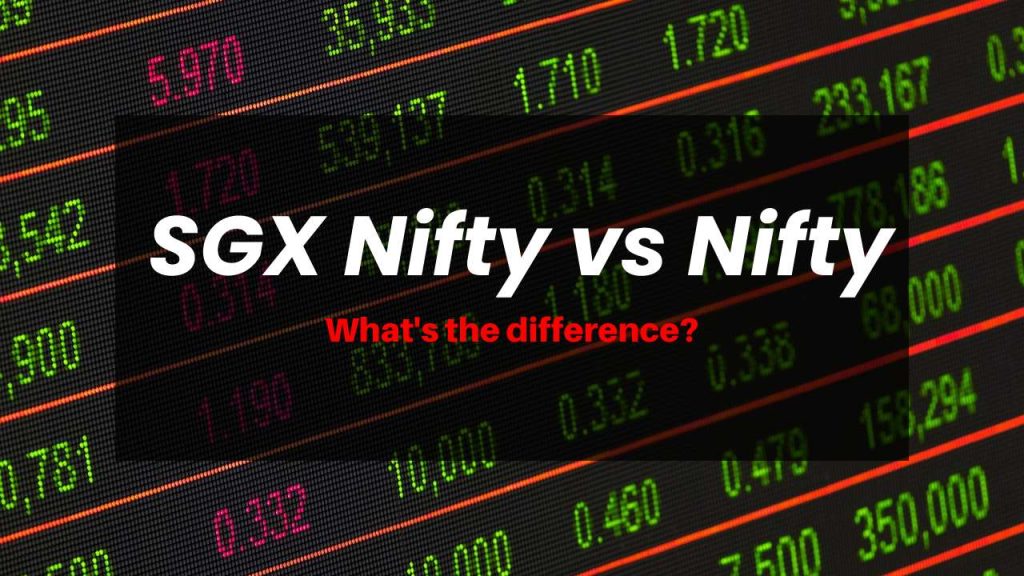
In the world of finance and investments, SGX Nifty and Nifty are two popular terms. The Nifty 50 index is the benchmark index for the Indian stock market. These words have to do with it. Even though both SGX Nifty and Nifty are linked to the same index, they are not the same in other ways, such as where they are located, when they trade, how they settle, and how much they cost. Investors and traders who want to trade on the Indian stock market or protect themselves from market changes need to know the differences between SGX Nifty and Nifty. In this article, we’ll look at what makes SGX Nifty and Nifty different, as well as how they affect the Indian stock market.
SGX Nifty and Nifty are both related to the National Stock Exchange of India’s (NSE) Nifty 50 index, but they differ in several ways:
Location: SGX Nifty is a derivative product that is traded on the Singapore Stock Exchange (SGX), while Nifty is the benchmark index of the Indian stock market that is traded on the National Stock Exchange of India (NSE).
Trading hours: SGX Nifty is traded for 16 hours a day, whereas the Nifty is traded only during Indian market hours, which is from 9:15 am to 3:30 pm Indian Standard Time.
Settlement: SGX Nifty futures contracts are settled in US dollars, while Nifty futures contracts are settled in Indian rupees.
Price differences: SGX Nifty futures prices may differ from the Nifty index price due to various factors such as time zone differences, foreign exchange rates, and market conditions.
Regulatory framework: SGX is administered by the Monetary Authority of Singapore, whereas the Securities and Exchange Board of India governs NSE (SEBI).
Impact on the Indian stock market: The movement of SGX Nifty futures may have an effect on the Indian stock market by affecting market sentiment and offering arbitrage opportunities. Nevertheless, SGX Nifty has a limited effect on the Indian market since it does not directly affect the Indian stock market.
In conclusion, both SGX Nifty and Nifty are tied to the Nifty 50 index, but they are different in many ways, such as location, trading hours, settlement, price differences, and the rules that govern them. Investors and traders who want to take part in the Indian stock market or protect themselves from market changes need to know about these differences. Even though the movement of SGX Nifty futures may have some effect on the Indian market, that effect is limited by the way regulations are set up and how trades are settled. When investors and traders know the differences between SGX Nifty and Nifty, they can make smart decisions and take advantage of the opportunities on the Indian stock market.
